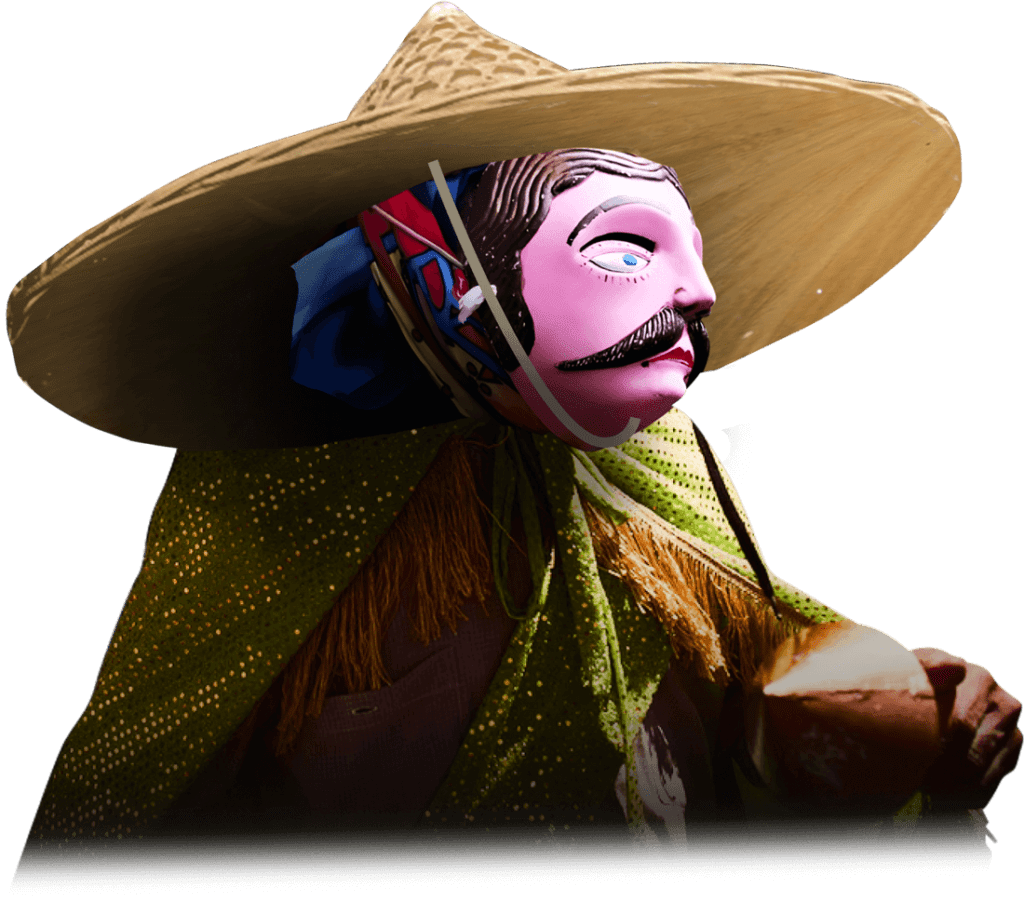

DIVERGENTES takes a closer look at the rapid rise of Chinese businesses across Managua’s major supermarkets, stores, and shops. This expansion, gaining momentum since 2023, stems from the recent political alliance between Nicaragua’s authoritarian regime, led by Daniel Ortega and Rosario Murillo, and the People’s Republic of China
The cat’s paw moves back and forth, back and forth, in an endless rhythm. With its raised paw mimicking a wave, it moves silently. Red markings contrast against its golden body as it performs its quiet ritual throughout the day.
It’s the fifth of its kind I’ve encountered today. All of them are essentially identical, with minor differences in detail: wide eyes, a plump body, and the characteristic blend of gold, red, and sometimes green. These cats, known as Zhaocai Mao in Chinese culture, symbolize good fortune, wealth, and prosperity—a fitting emblem for the Chinese shops, supermarkets, and businesses rapidly spreading across Nicaragua.
For just 253 córdobas, Nicaraguans can embrace this Eastern charm to invite luck into their homes. A larger version goes for 690 córdobas, while a more affordable option costs 172 córdobas. The variety is abundant, reflecting the proliferation of Chinese businesses now dotting Managua’s commercial landscape.
DIVERGENTES explored the city’s key supermarkets, stores, and Chinese-owned establishments, which have surged in number since 2023. This rapid expansion is a visible consequence of the growing political ties between the Ortega-Murillo regime and the People’s Republic of China.
Metro China, the first stop on this journey, has replaced a second-hand bargain store that, despite its prime location near Metrocentro, was not very popular. Now, no trace of that shop remains—Metro China has arrived to stay.
Metro China, like many Chinese businesses, is a recent addition, opening its doors on May 9, 2024. The scent of fresh paint still lingers, while its vibrant yellow walls and striking scarlet signage exude a sense of freshness and novelty.
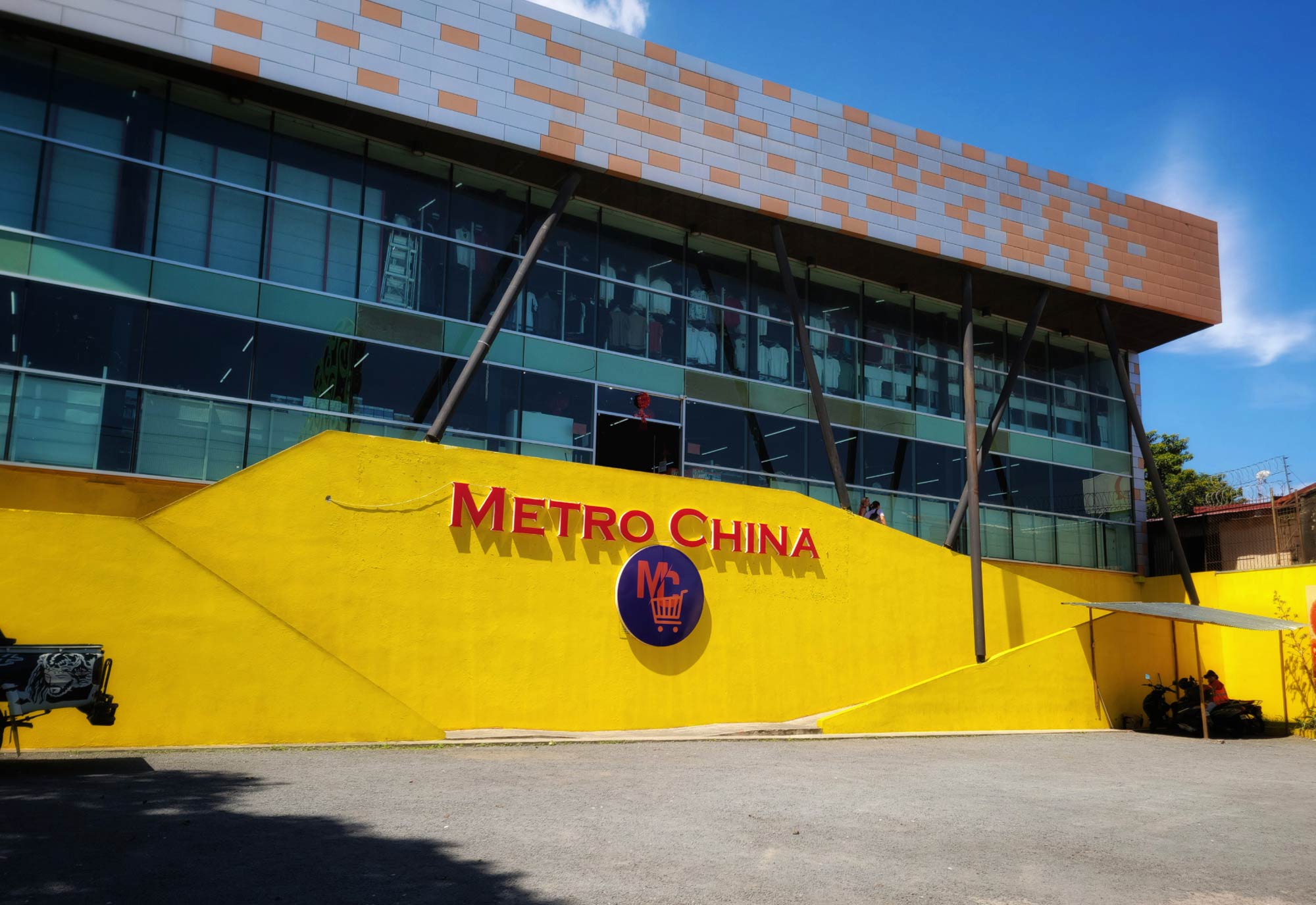
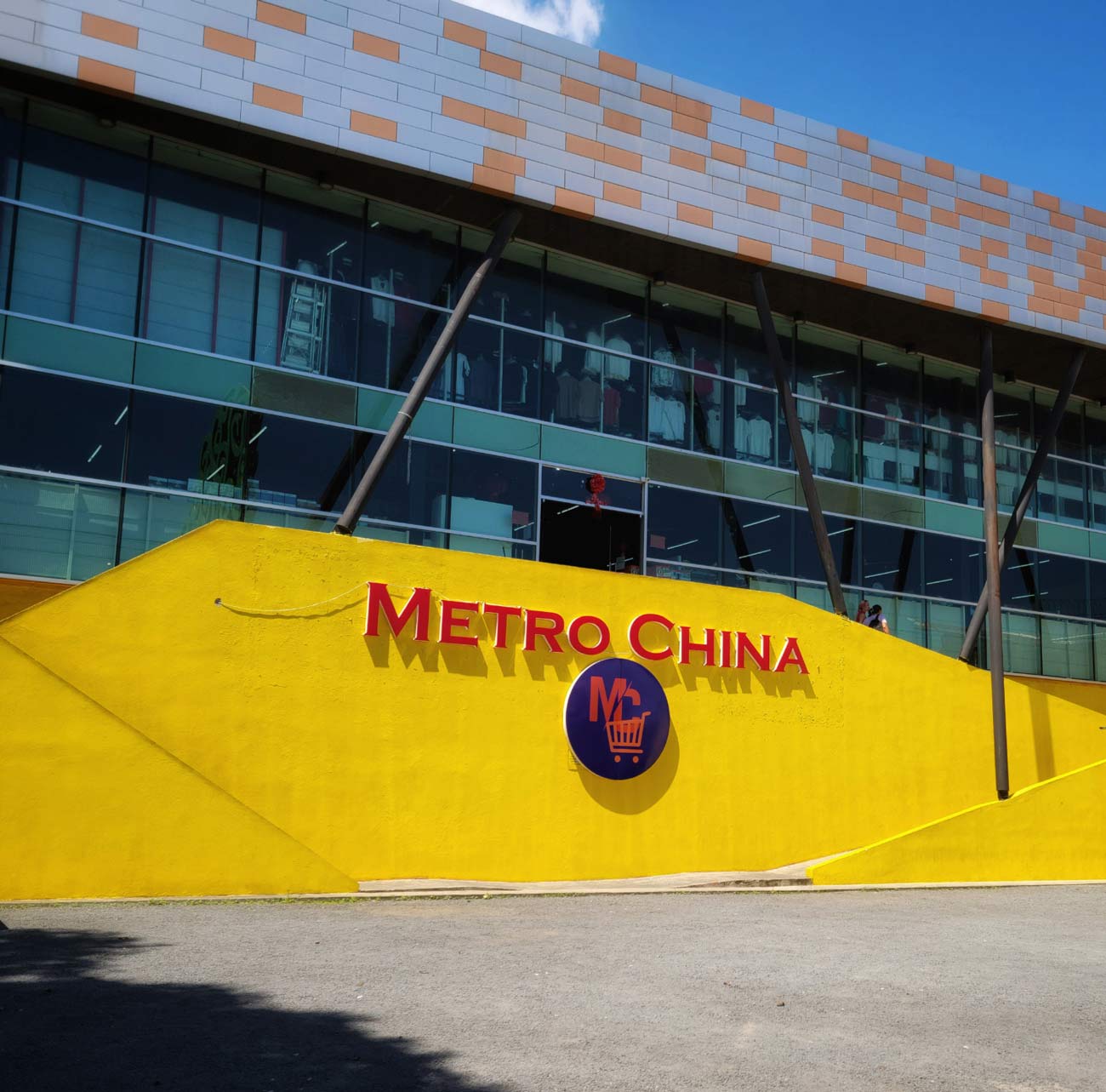
Upon entering, a young Chinese man greets me with a warm smile. His Spanish extends only to a friendly “hola,” while the rest of his words remain unintelligible to those unfamiliar with his native tongue.
The store offers a wide and eclectic selection, much of it unfamiliar. Shelves are stocked with home goods, stationery, hardware, boutique items, and groceries—many featuring brands and purposes that feel foreign to the average Nicaraguan shopper. Some items come with instruction manuals, but deciphering their use often requires translation.
The assortment includes personal hygiene products, beauty items, party supplies, and a mix of local and Chinese food products. Toward the back of the first floor, I notice rows of Café Presto boxes sitting beside Chinese coffee packaged in characters I can’t begin to interpret.
The cleaning products section feels more familiar, with brands commonly found in other supermarkets across Nicaragua. Yet, at the far end of the store, something unexpected appears: adult toys for men and women, displayed openly without the discreet packaging typical of such items. It’s an unusual sight in Nicaragua, one likely to surprise, if not scandalize, conservative shoppers.


Though not overcrowded, the store attracts several curious families browsing the aisles. A young man enthusiastically fills his basket with items, showing his companions what he’s found. “Look, the stuff that’s trending on TikTok is here!” he exclaims.
These stores and their Chinese owners have found an ally in social media to expand their reach, relying on Nicaraguan TikTokers and influencers for promotion. Whether for their “low prices” (a claim that varies depending on the item) or their product variety, many people visit these stores to explore and discover new things.
At the checkout, two Chinese employees—one younger and one older—handle the transactions. Behind them hang red and gold Chinese decorations, including lucky cats. Colorful signs indicate that bank transfers should be made to Jingui Chen, one of the store’s managers.
The young customer ahead of me tries to say something to the employees, but they respond in Chinese, not Spanish. After several failed attempts to communicate, one of the Nicaraguan staff members stacking boxes suggests he use Google Translate.
“Should I use Traditional or Simplified Chinese?” the customer asks, phone in hand. The employee hesitates for a moment. “I’m not sure, just use ‘Chinese,’” she replies. “But there are two kinds!” he insists. “Use either one,” she resolves. The rest of the conversation unfolds between the customer, the employees, and the translator app.

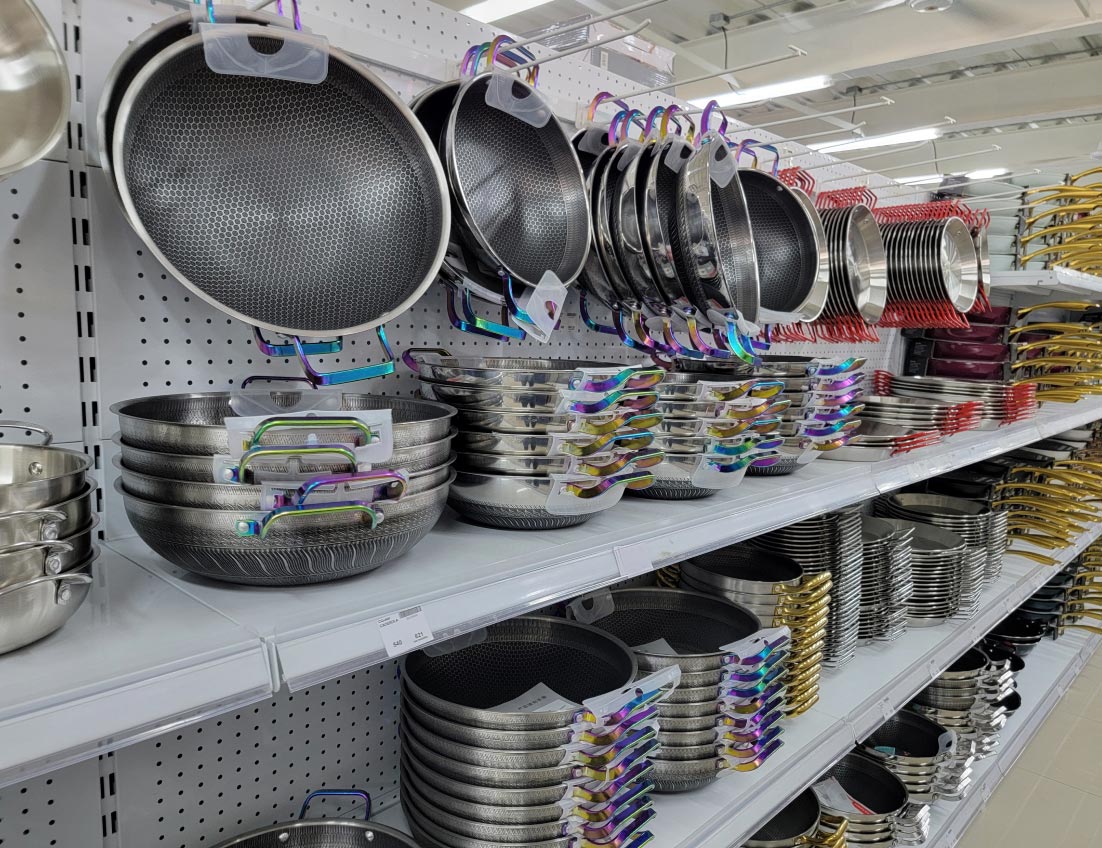
China Mall, the largest Chinese supermarket in Nicaragua, opened in December 2023. Its size and inventory rival those of Walmart and Pricesmart. Exploring all three floors and their countless aisles requires ample free time and comfortable footwear.
The variety of products is so vast that some items might seem absurd to an average Nicaraguan shopper—unless you’re in the market for mini solar panels, giant aquariums, golf equipment (priced at a hefty 31,000 córdobas), or an entire home gym. The imaginable and unimaginable can all be found in this space.
At the entrance, a water fountain surrounded by artificial plants and flowers welcomes customers. Coins sparkle at the bottom of the fountain, likely accompanied by wishes from visitors.
Across from it, a large red sign features a detailed map of the place, outlining the building’s three levels, each subdivided into left and right sections for added clarity, with a total of 34 areas to explore and shop. Products that were once buried deep in the Mercado Oriental—already teeming with Chinese businesses—are now easily accessible, with carts available for convenience.
As I stroll through the aisles, workers unload products from boxes, arrange them on shelves, and label items. They sort, clean, and assist customers who frequently ask, “What is this for?” or “How do you use this?”
The first floor is lively, filled with people sorting through shelves; the second floor is quieter, mainly occupied by workers; and the third floor is nearly empty, as it’s unlikely anyone will casually take a 50-kg punching bag or a double-sink vanity with a mirror.
While many of the items seem overpriced relative to Nicaragua’s minimum wage—which barely covers half the basic food basket—some products, like school supplies, stand out for their competitive prices. Backpacks, pencil cases, and notebooks are notably affordable, as are tools and gadgets in the hardware and technology sections, though many are imitation brands.
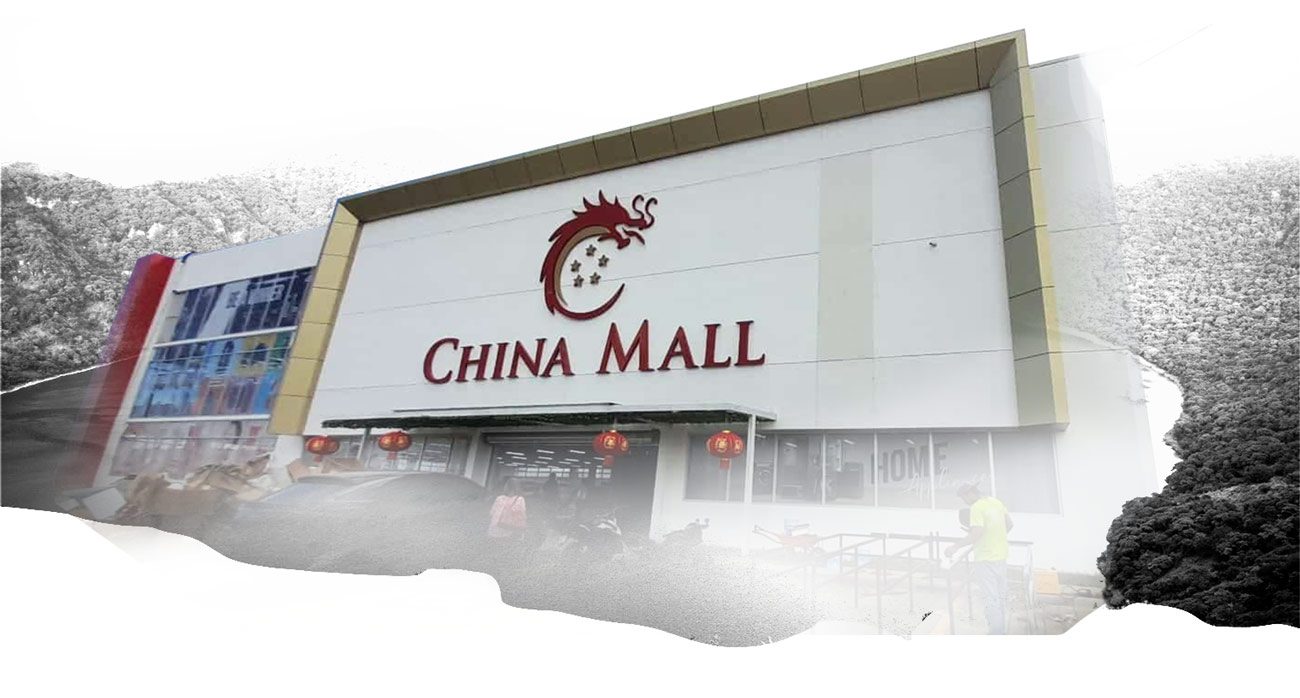
As I exit the megastore, a truck—sporting a brand I’ve never seen before—arrives, unloading several people of Chinese descent. They appear to be the managers or owners of the China Mall, coming to oversee the business.
In the past, encounters with Asian individuals in Nicaragua were primarily limited to tourist hubs along the Pacific coast. Now, Chinese presence is centered in commercial and urban areas, where they live not as visitors but as residents and business operators.
During this brief exploration, I spot Chinese individuals not only in Chinese businesses but also at malls, shopping in stores, dining in restaurants, walking the streets, or driving cars amidst Managua’s traffic. Men in suits, younger individuals in jeans and sneakers, and women wearing large hats to shield themselves from the city’s scorching sun are now a common sight.
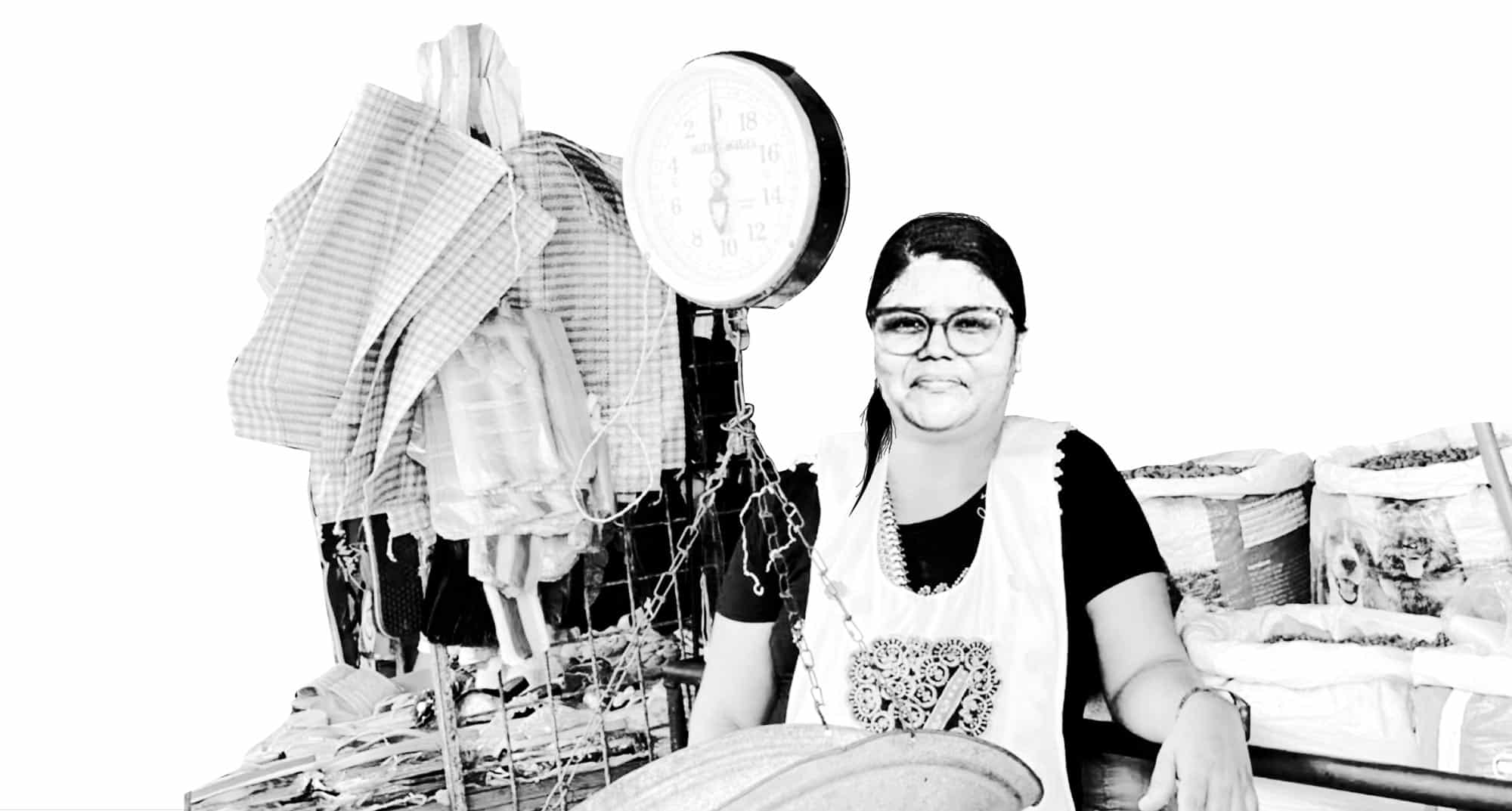
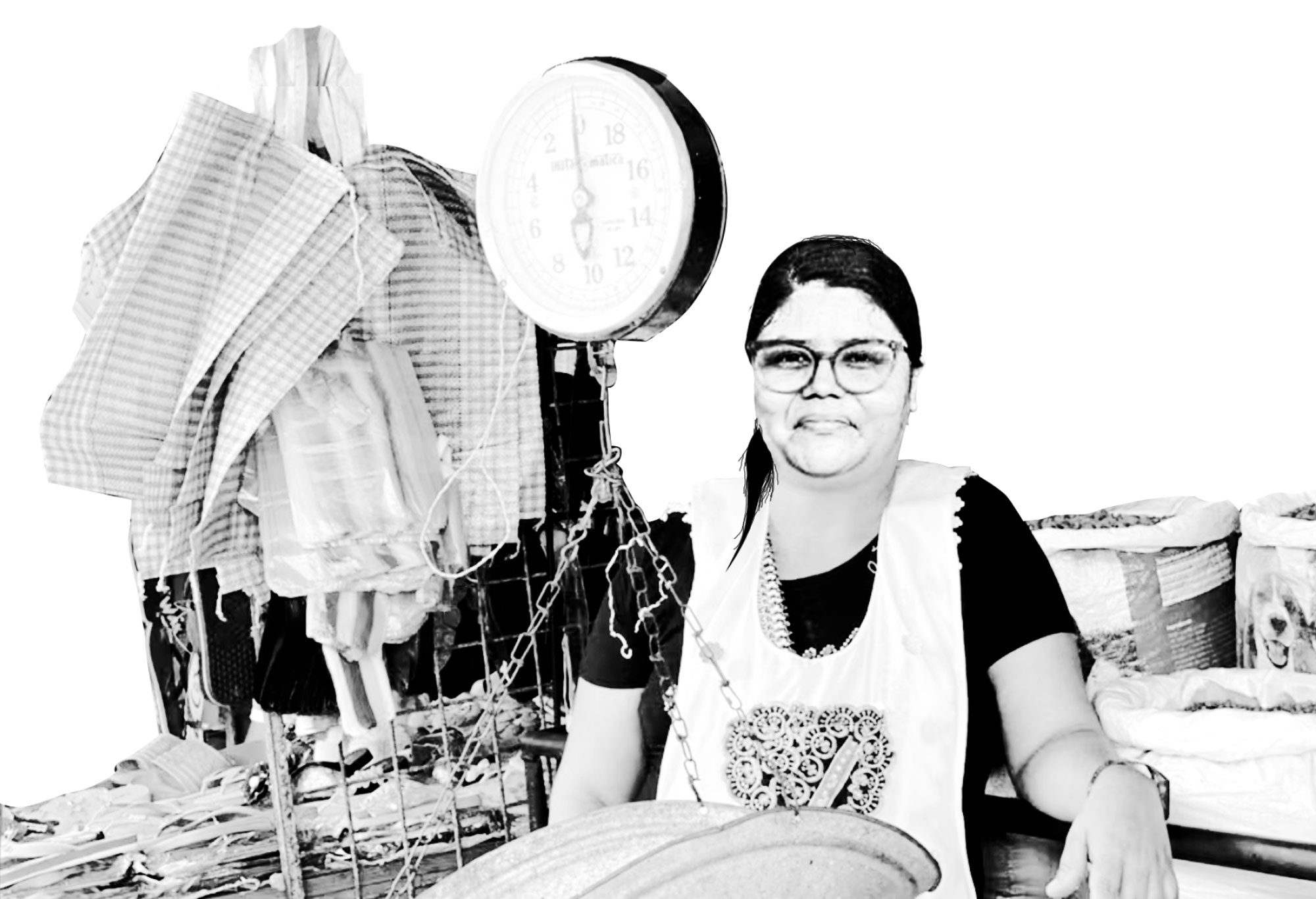
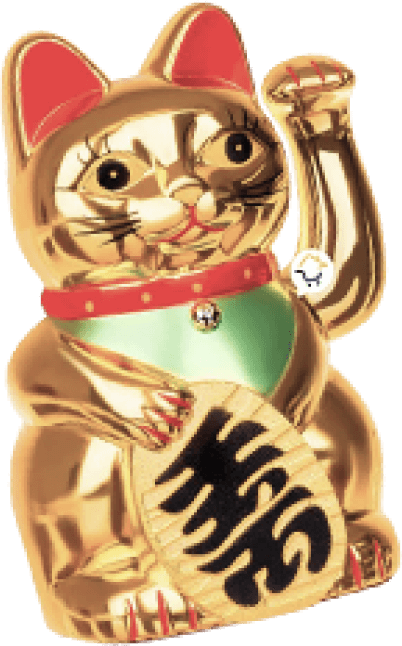
Two women are deeply focused, calculating how many dozens of facial cleansing wipes to buy for their small business. These wipes, a common item in every Chinese store, are especially attractive due to their low bulk prices—though buying single units is less economical.
A packet of wipes labeled “suitable for all skin types” costs 45 córdobas each, but purchasing a dozen brings the price down to just 20 córdobas per packet. For these women, who run a skincare business using Chinese products, it’s a real bargain.
“Tell me how many we need and which kinds,” one of them calls out into the phone, adding a third person to the conversation. In the same aisle, others are also calculating costs, buying supplies for their businesses, corner stores, birthday parties, or even for La Purísima celebrations.
The Chinese Bazaar is chaotic. Half-open boxes clutter the cramped space, forcing shoppers to dodge piles of products stacked on the floor. Shelves extend to the ceiling, crammed with goods, making it hard to believe the inventory ever ends.
Unlike the first two stores, the Chinese Bazaar primarily targets Nicaraguan business owners, aiming to become their main supplier. Bulk purchases offer the best deals—not single items or smaller quantities.
By now, the catalog of Chinese stores has become predictable, and the unfamiliar brands I first encountered are now oddly familiar. The only notable absence is food items, especially instant noodles—or as I overheard a worker call them, “Chinese Maruchan.”
Signs taped to shelves display prices, discounts, and product details, all written in Chinese.
Until November 2023, the Chinese Bazaar was located in the Mercado Oriental. According to state-run media, it relocated to the Carretera a Masaya to provide easier access for buyers from other regions. Keeping entrepreneurs in mind, they also offer free nationwide shipping for purchases over 3,000 córdobas.
When I ask one of the cashiers where I can grab a bite to eat, she directs me across the street to another Chinese store that specializes in food products.
As I leave with a few purchases, a friendly woman at the entrance retrieves my bag from the lockers—a common rule in almost all Chinese stores that prohibits shoppers from carrying backpacks or handbags inside.
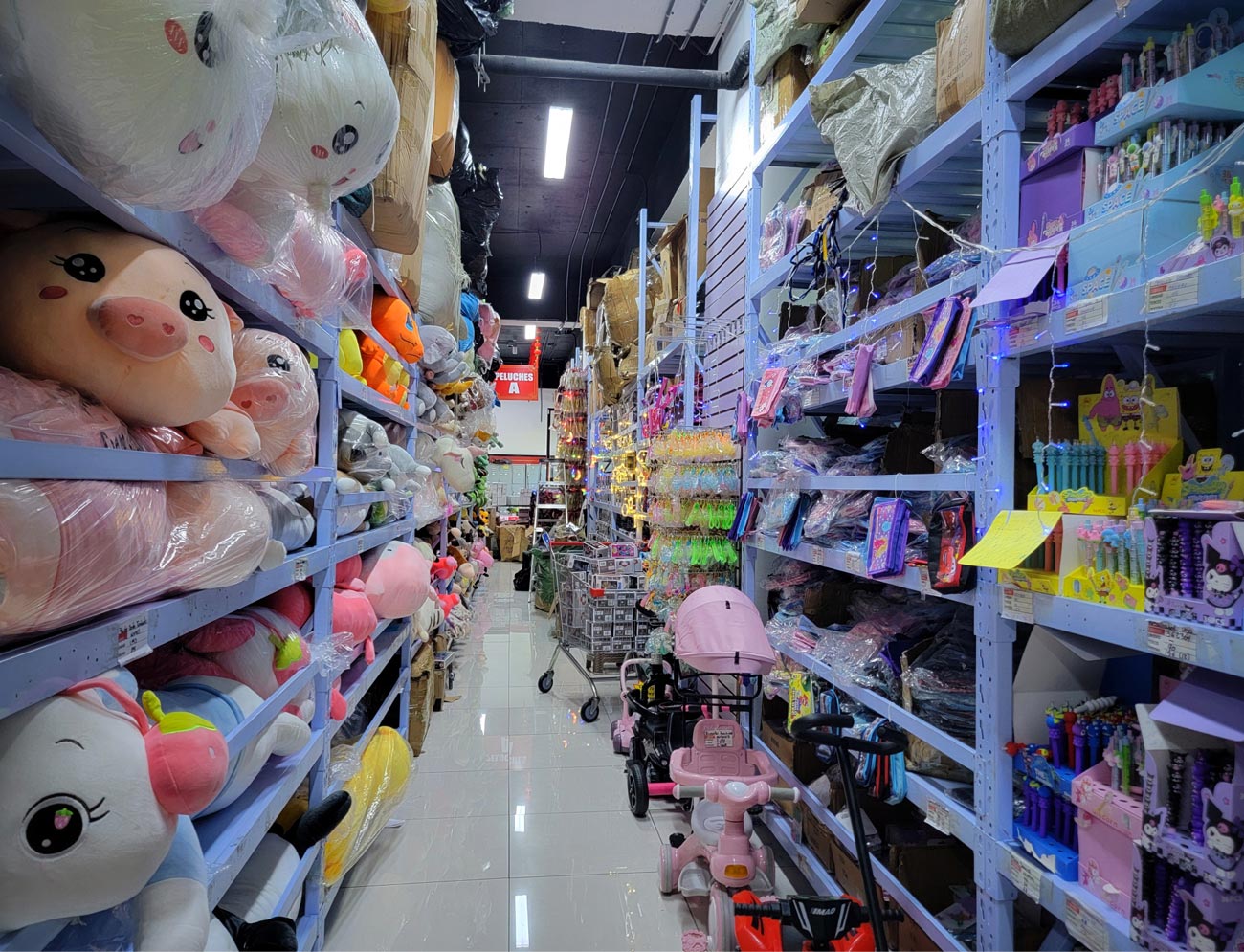
Not all Chinese ventures involve massive investments and sprawling supermarkets. The self-service model, popularized in Nicaragua by chains like AMPM and Super Express, is also being adopted by new Chinese investors.
Catering to quick, small purchases, Minisuper China, which opened just months ago near Camino de Oriente, is perfect for fast-paced consumption.
The small shop spans only a few square meters, with shelves and fixtures essential for operation. At the entrance, a burst of neon colors overwhelms shoppers, with fluorescent bottles of Chinese beverages that remain a mystery even when examined up close.
A cheerful Nicaraguan cashier greets me, offering to guide me through the store after I confess I don’t know what to try. She enthusiastically points out products based on her personal experiences.
“This one tastes like soda with honey,” she says, holding up a bright orange bottle. “This is a peach-flavored drink—it’s delicious,” she adds. “But this one? I don’t like it, not at all,” she warns.
Her honest reviews feel like a crash course in Chinese imports. By the time I make my selection and head to the counter, she dashes off to fetch her boss. Moments later, a slender, gray-haired Chinese man appears. When I offer my debit card, he utters some words in Chinese. “We don’t take cards,” the cashier explains, leaving me to pay in cash. The receipt I receive is entirely in Chinese, except for the numbers.
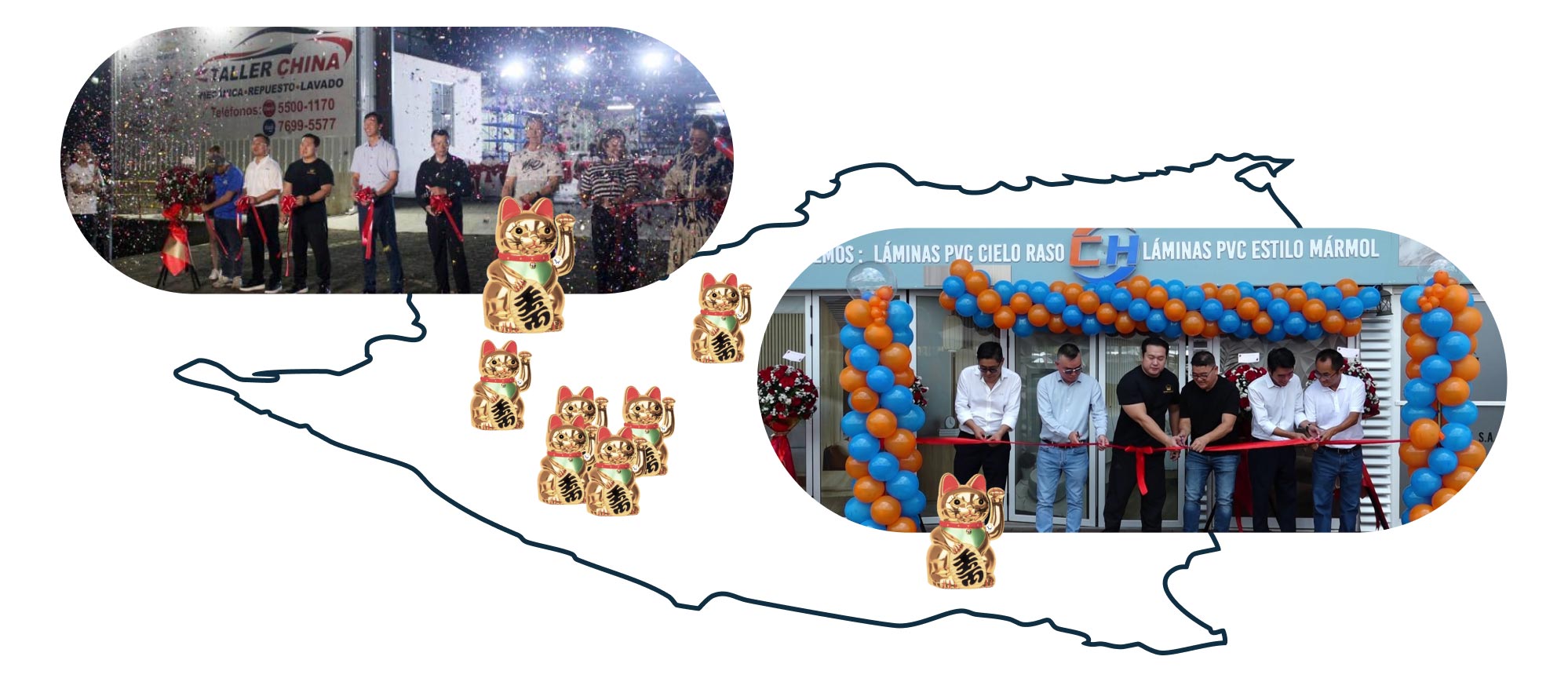
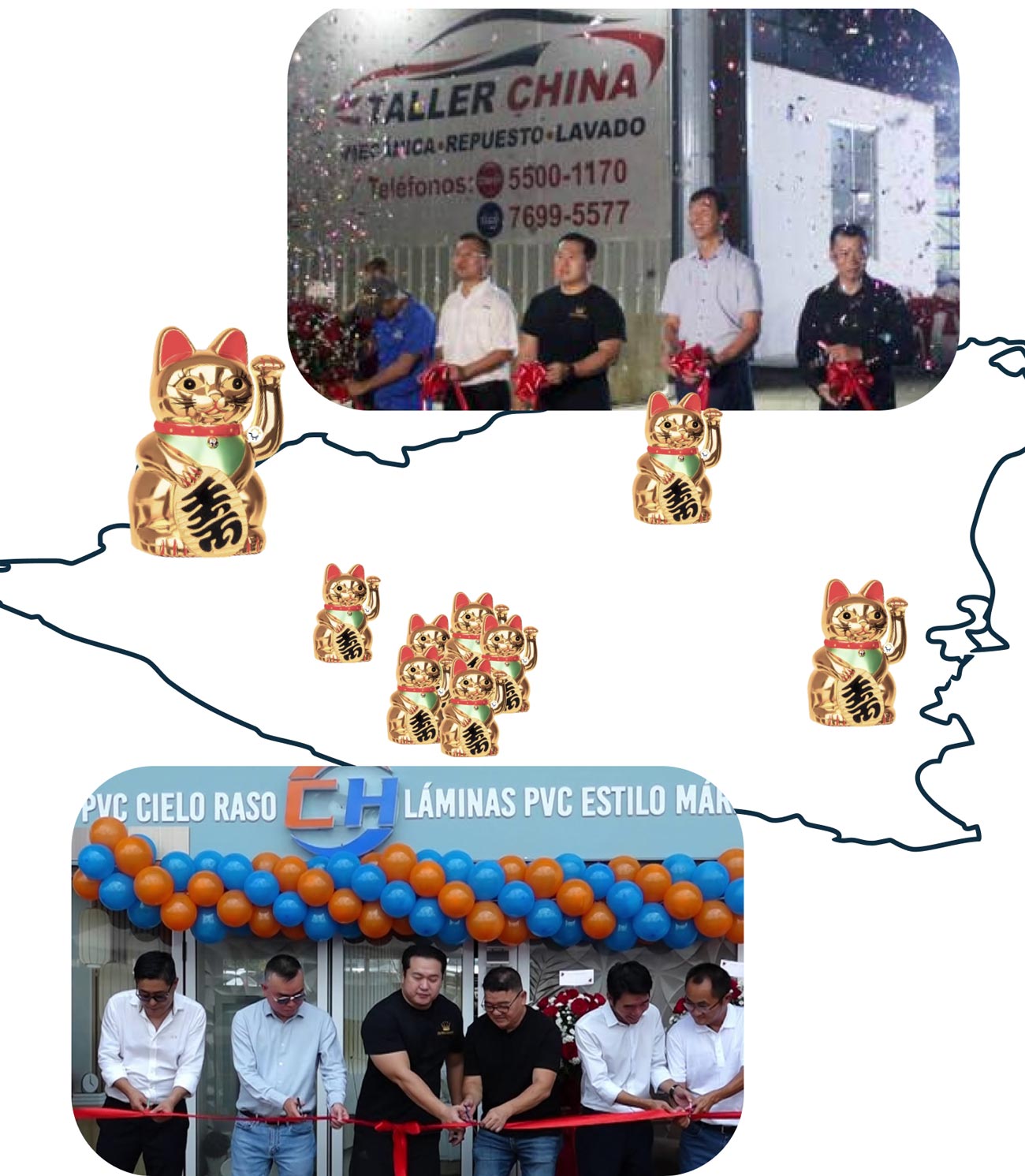
So far, supermarkets and stores have been the primary focus for Chinese investors, but they aren’t the only ones.
The wholesale hardware store Chang Kong S.A., which opened in May, now competes with local hardware chains.
Upon entering, a large marble countertop catches my eye—priced similarly to a cement-and-tile alternative. However, it’s not real marble but a more affordable imitation. If I wanted genuine marble, they could source that too.
“Nothing to envy from any other business,” assures one of the clerks as she shows me other kitchen materials for a project I mentioned.
They promote Chinese materials as the best for home, office, or commercial interiors, offering a rehearsed tour to curious visitors and clients alike.
Though it mainly serves wholesalers and construction projects, Chang Kong S.A. currently only accepts cash payments. Partnerships with banks and financial institutions to offer credit are “coming soon,” the saleswoman tells me. And according to Chinese businessman Chen Chen, speaking to pro-government media, the plan is to expand across Central America.
Meanwhile, the much-talked-about Taller China auto shop opened a few months ago, servicing all car brands. Inspections start at $10, and diagnostics cost $20—prices comparable to other local garages.
The difference lies in the tools and parts used, which are entirely Chinese. “But they’re good quality,” one Nicaraguan mechanic assures me.
If business goes well, more branches will open across Managua and major cities. The rapid proliferation of these businesses this year is just a glimpse of what’s to come. A few meters from the auto shop, a new Chinese convenience store is already preparing to open its doors.


